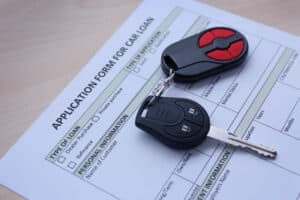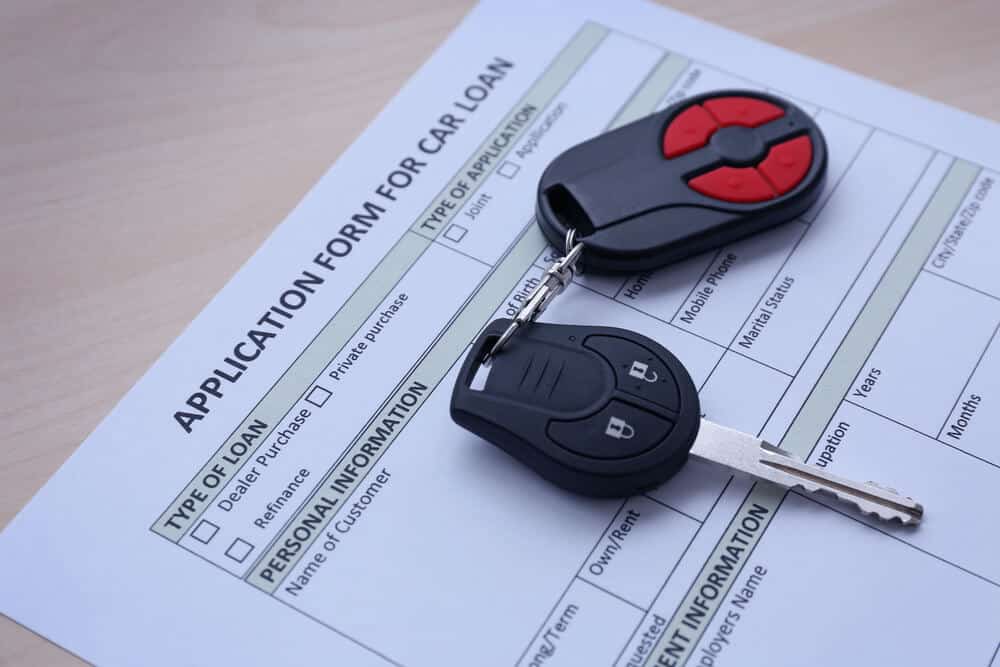Explore the Different Options to Handle Car Loan Issues in Divorce in New Jersey
Your Automobile Loan and Your Car Title are Two Issues to Address When Deciding What to Do With Your Vehicle During a Divorce.

Implications of Refinancing a Car Loan in NJ Divorce
While divorcing parties would hope to sell a car and repay the loan to avoid the risk of nonpayment by one spouse, that is not always possible. The marital assets may not be sufficient to pay off the loan, and the spouse driving the car may need it to go to work, transport children to school, and food shop, among other necessities. So, the next best option is to have the spouse who drives the vehicle modify or refinance the car loan to remove the other spouse’s name from the loan. That way, the other party does not suffer future consequences of nonpayment, accident liability, or the like.
A refinance and transfer should occur before the divorce decree is final; otherwise, the order should include the agreement terms regarding the transfer and refinance. Unfortunately, a modification or refinance is not guaranteed. The spouse wishing to own the vehicle must either get the lender to remove the other spouse’s name from the loan, qualify for a refinance loan by application and approval, or get a financially stable cosigner.
In other words, the applicant must convince the lender to modify the loan or qualify with the lender to refinance the car. Thus, the feasibility of that option rests on the lender’s agreement or the refinancing spouse’s income and debts. But when a spouse can qualify for a loan, the divorce decree should specify the timeframe to accomplish a refinance and title transfer. It should not be an open-ended option.
Liability for the Remaining Balance on a Car Loan
Even though one spouse drove the car during the marriage and paid the car payment, when both parties took out the loan, they both agreed to be liable for the loan balance. So, when payments are delinquent, the lender will seek compensation from the parties who signed the loan. And both parties suffer from adverse credit reporting by the lender. A bank or auto finance company does not care about and is not legally obligated to obey a divorce decree. A contract is legally binding on those who signed it and is enforceable in a court of law. Thus, regardless of the divorce decree, the lender can seek the loan balance and any additional charges from both or the loan debtors when payments cease.
Payment Arrangements to Handle Car Loans in the NJ Divorce Process
Fortunately, there are creative solutions to the dilemma. One such solution is to deduct car payments from alimony or child support payments. For example, when the supported spouse has the car, the supporting spouse can make the car payments by deducting that amount from support to ensure neither the lender negatively affects their credit nor sues them for the loan balance. And to keep the supported spouse in the loop, they can request monthly statements to go to both parties. In that way, the supported spouse does not have to find out the hard way that payments ceased, and thus, the lender repossessed the car. Likewise, the statements should go to both parties’ addresses when the supported spouse makes the payments.
But even before selling or refinancing a car, the parties should know the vehicle’s value for an equitable division of the assets. The vehicle may have equity owing to both parties. When one party is awarded a car with a small loan balance, they may need to offset the equity with other assets. When that is not possible, the divorce decree may include language setting the terms and dates for using the vehicle before selling it and dividing the proceeds less any loan payments when the use period expires and the sale is complete.
In fact, the divorce decree should spell out the handling of the joint vehicle loan and vehicle. When both parties’ names are on the title to the vehicle and the loan, the divorce decree should indicate how the vehicle’s title and loan are apportioned.
How to Address the Issues with the Names in the Car Title
Typically, both parties’ names are on the title and the loan. Title documents are ownership documents, and loan documents are evidence of a loan, making those who signed the loan documents debtors to the lender. As such, even though a family court awards a party the family car with the loan, that award does not include full title to the vehicle. Only when the loan is paid off do the parties get the ownership papers, or title, from the lender. The title remains in the name of both parties until that time unless one party refinances and removes the other’s name from the loan. Then, the other spouse should remove their name from the vehicle title, but only after. The title should remain in both names until the car loan is refinanced or paid off; otherwise, the spouse who does not have the vehicle is on the hook for the loan payment but has no ownership interest in the car. They are legally obligated to pay the loan but not to receive any proceeds on the sale of the vehicle.
Car Loan and Post-Divorce Bankruptcy in New Jersey

When inequity results from a post-divorce bankruptcy, many divorce decrees contain language that allows a judge to reopen a divorce case and re-allocate assets and debts to offset the inequitable burden on the non-bankrupt spouse. As an alternative, the divorce decree may allow for a downward adjustment in support to offset any financial losses to the non-bankrupt spouse. The same provisions may apply to the possibility of the vehicle lender’s lawsuit for nonpayment. But even without such language, a bankruptcy or creditor lawsuit may be a change of circumstances that allows an “innocent” spouse to legally go into family court to modify the divorce decree.
Consult with One of our Experienced Divorce Lawyers for The Best Way to Handle Your Car Loan in Ocean County, NJ
When it comes to a car loan, the best approach is to specify who gets the car, the title, the loan obligation, and who pays for the loan. It is also wise to anticipate and spell out possibilities of default, lawsuits, and bankruptcies concerning a car loan and what happens in the event of all these possibilities. Our talented family law attorneys craft divorce decree provisions with an eye toward future problems, knowing that couples financially struggling may not be able to meet their obligations.
With the background and forethought that only years of experience has provided, we look at the details of your unique situation to develop an appropriate solution. For instance, we may recommend selling the car and paying off the loan with the proceeds to avoid costly eventualities, such as a default or bankruptcy. In other cases, we may offer other solutions to the car loan problem and get both parties to agree to it in the decree. When you want to successfully finalize a divorce, be sure you have a family lawyer at The Bronzino Law Firm, skilled in crafting marital separation agreements with car loan provisions. Our firm offers insight, legal representation, and dedicated assistance with divorces in Lacey, Red Bank, Manchester, Lavallette, Beach Haven, Sea Bright, and towns in and around Monmouth and Ocean Counties. Contact us at (732) 812-3102 or get in touch online for a free consultation to discuss your case today.







